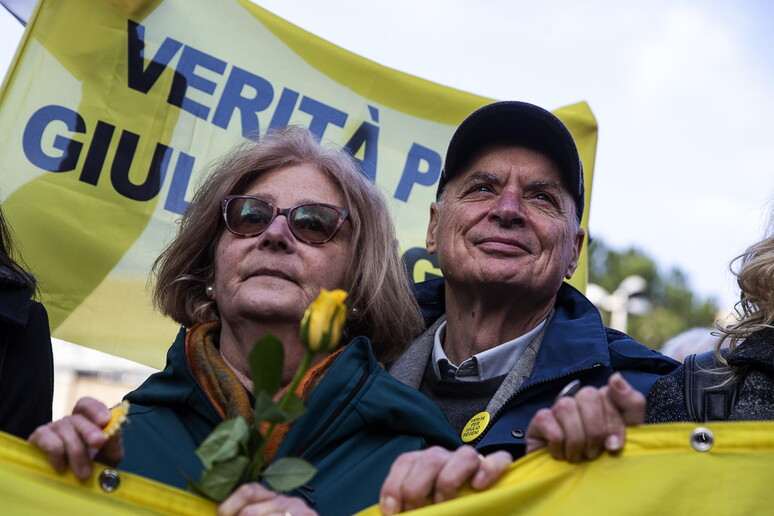Premier Giorgia Meloni said on a trip to Cairo Sunday Italy would try to move forward for truth and justice in the 2016 murder in the Egyptian capital of student Giulio Regeni, for whose torture and death four Egyptian intelligence officers are on trial in absentia in Rome.
"Italy always tends to ask this question, and then there is a trial in Italy, we have gone ahead to do what we have to do", she said after meeting President Abdel Fattah el-Sisi, who has made several vain promises to help in the case.
"There is a judicial process that is going on, for us it is important, in my opinion it must go on, we will continue to try to get even more," said Meloni.
"I think what we have to do is to move forward on the front of truth and justice."
The second hearing in a trial long postponed due to Egyptian stonewalling is set to open in Rome Monday.
Regeni, a 28-year-old Cambridge University doctoral researcher into independent Egyptian trade unions, disappeared on the Cairo metro on January 25, 2016 and his mutilated, semi-naked body was found in a ditch on the road to Alexandria on February 3.
The four Egyptian security officers, National Security General Tariq Sabir and his subordinates, Colonels Athar Kamel Mohamed Ibrahim and Uhsam Helmi, and Major Magdi Ibrahim Abdelal Sharif, have been put on trial in absentia after Cairo long stonewalled the case and refused to give their addresses or contact numbers. This caused a long delay, when ended in September when the Constitutional Court ruled that the trial could proceed even though the officers have not been formally notified of the proceedings against them.
Regeni's torture and murder sparked global outrage, with more than 4,600 academics signing a petition calling for an investigation into his death and into the many disappearances that take place in Egypt each month. On January 25 Italy marked the eighth anniversary of Regeni's disappearance with events titled All The Chickens Come Home To Roost referring to the long-awaited Rome trial.
Regeni is believed to have been killed after a street seller union head fingered him as an alleged spy, and due to the politically sensitive nature of his doctoral research for the British university.
Regeni, from a small town near Udine in northeastern Italy, was tortured so badly that his mother Paola Deffendi said she could only recognise him "from the tip of his nose". Deffendi said "all the evil in the world" was visited on her son's body.
His body, according to an Italian autopsy, showed signs of extreme torture: contusions and abrasions all over from a severe beating; extensive bruising from kicks, punches, and assault with a stick; more than two dozen bone fractures, among them seven broken ribs, all fingers and toes, as well as legs, arms, and shoulder blades; multiple stab wounds on the body including the soles of the feet, possibly from an ice pick or awl-like instrument; numerous cuts over the entire body made with a sharp instrument suspected to be a razor; extensive cigarette burns; a larger burn mark between the shoulder blades made with a hard and hot object; a brain haemorrhage; and a broken cervical vertebra, which ultimately caused death.
ALL RIGHTS RESERVED © Copyright ANSA











